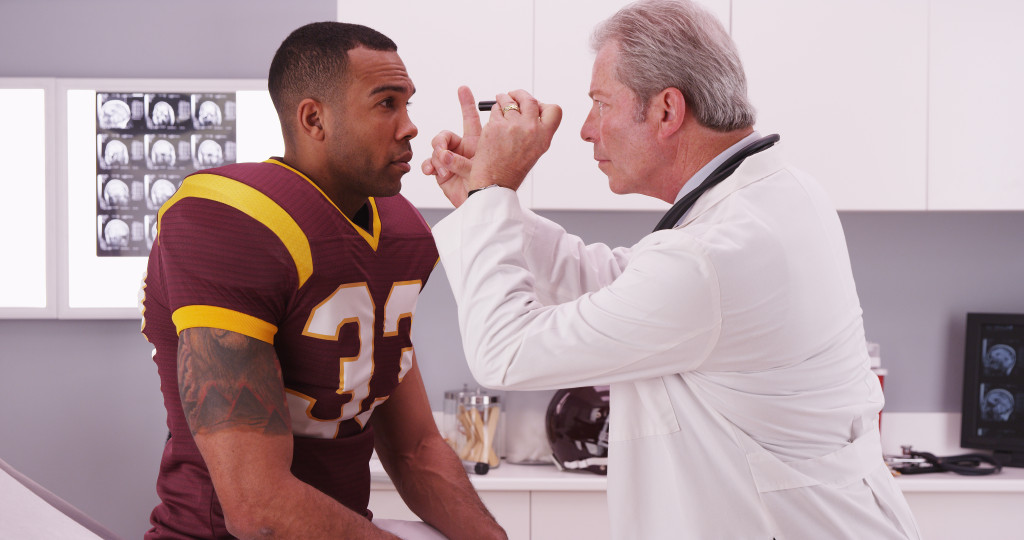- Seek medical attention for a suspected concussion to ensure proper diagnosis and treatment.
- Rest and get plenty of sleep, avoid tedious cognitive activities, and practice relaxation exercises to help to heal.
- Hydrate well to supply oxygen throughout the body and brain for faster recovery. Follow up with the doctor after recovery to monitor any residual effects of the concussion.
- Limiting screen time can help reduce symptoms such as headaches, dizziness, and tiredness.
- Consider holistic remedies such as massage or acupuncture to reduce pain and other associated symptoms.
When someone suspects a concussion, they must take the proper steps to recover fully and safely. A concussion is a traumatic brain injury caused by a sudden impact on the head or body, resulting in the brain rushing within the skull. This can cause damage to the neural pathways in the brain, which can cause a wide range of symptoms.
Common signs of a concussion include headaches, dizziness, confusion, difficulty concentrating and remembering things, nausea and vomiting, sensitivity to light and noise, blurry vision, and tiredness. Sometimes, people may also experience changes in sleeping patterns or behavior. It is essential for anyone who suspects they have sustained a concussion to seek medical attention as soon as possible. Here are a few steps to consider.
Consult a Doctor
A significant head trauma will make you feel dizzy instantly, but the other, more worrying signs of concussion might not appear until later. It’s essential to consult a medical professional who can properly diagnose the injury and recommend treatment options.
The doctor will likely order an MRI scan, even if the test cannot fully detect a concussion. The scan will help rule out other complications, such as a skull fracture or a hematoma. However, you might not feel comfortable during an MRI test because it has an enclosed space. Lying down might also be challenging. Fortunately, you can get an upright open MRI scan from a private imaging center. Once you have the MRI results, you can take them to your specialized doctor to make the entire assessment.
Rest and Sleep

When recovering from a concussion, it’s essential to rest and get plenty of sleep. When you are well rested, your brain can quickly process information and heal itself. Avoid technically demanding cognitive activities for at least a few days after the injury to give your brain enough time to recover properly. Try not to overdo it when you start feeling better, as physical activity can worsen symptoms such as dizziness or headaches.
During your rest, you can also perform the following things at home to help you recover from a concussion:
Hydrate
Drinking plenty of water can help reduce many common symptoms associated with a concussion, including headaches, dizziness, and tiredness. Proper hydration also helps to supply oxygen throughout your body and brain, which is essential for healing.
Relaxation Exercises
You can practice relaxation exercises like deep breathing or yoga to help relax your mind and body after suffering a head injury. These activities will help reduce stress and provide an overall sense of well-being.
Follow Up Care
It’s essential to follow up with a doctor once you have recovered from the initial injury to ensure that all symptoms have cleared up completely. The doctor will monitor any residual effects of the concussion, such as changes in behavior or signs of post-concussion syndrome (PCS).
Avoid Staring at Screens
Computers are part of people’s lives, and many use them daily. However, you must limit your time staring at computer or phone screens if you have a concussion. The light from the screens can cause headaches and worsen other symptoms. Please don’t forget to take frequent breaks if you have no choice.
Recovering from Concussion

Unfortunately, doctors might confirm a concussion but offer limited treatment options. This can be discouraging for people, as the symptoms might take days or weeks to recover completely. Fortunately, you can look into holistic remedies such as massage and acupuncture to help reduce pain and other symptoms associated with a concussion. Before trying any of these treatments, please consult your doctor to ensure they are safe and effective.
The worst-case scenario for concussion is long-term damage to the brain, so it’s essential to take the necessary steps to ensure a full recovery. If you suspect you have sustained a concussion, seek medical attention as soon as possible and follow these tips for proper care.
Final Thoughts
It is important to remember that everyone heals differently, so each person may have a unique process of recovering from a concussion. It might take some time before all symptoms are completely gone, but with the proper steps, you can ensure that your mental and physical well-being is taken care of during this challenging period.

